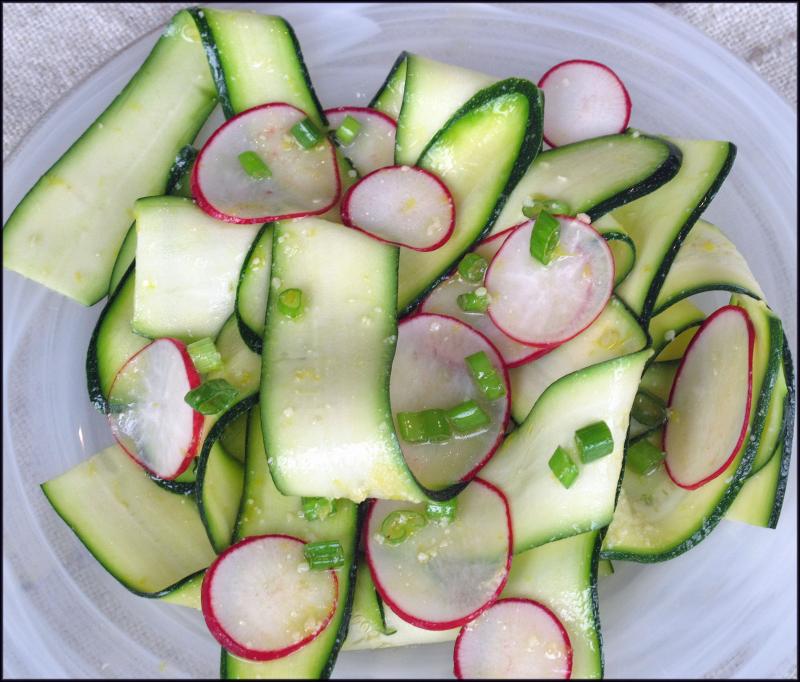Share:
Support local suppliers; buy freshest offerings
May 22, 2020
During the restrictions imposed by the pandemic, we’ve been muddling along with limited availability of fresh, local produce. Lloyd’s in Lewes has been a wonderfully reliable source, well-stocked with fruits and vegetables from family farms. Hattie’s Garden has been a lifesaver, offering weekly delivery of produce from her farm and a wide range of items from other growers, fishermen, bakers and chefs.
Although they will start to open later this month, our farmers markets will look a little different. Instead of families and friends milling about, sipping coffee and nibbling on baked goods, catching up on the latest news, we will be asked to walk through the market following a pathway of one-way arrows, keeping appropriate distance and not fondling the goods, but asking the vendor to package our choices.
Despite these changes (which some of us may experience as inconveniences), I am delighted to be able to support our local suppliers while enjoying their freshest offerings. I have already made a mental list of each booth I want to visit and what I hope to find – eggs, arugula, yogurt, sourdough, oysters, lamb and lavender – just to name a few.
In anticipation of the upcoming markets’ openings, I thought I would share some recipes for late-spring specialities, starting with the zucchini salad in the photo. Tender strips of shaved zucchini are tossed with impossibly thin radish slices and bits of scallion in a lemony vinaigrette.
The recipe that inspired this comes from Christopher Kimball’s Milk Street Cookbook. Published earlier this year, the collection features recipes demonstrated on the television program, “New Home Cooking.” The premise of the collection is to share global influences and traditions in a variety of dishes, showing how they can be adapted to succeed in the home kitchen.
For this particular recipe, I made some changes based on my flavor preferences. Instead of honey, I substituted rice wine vinegar to provide some slightly sweet notes. Since I’m not a fan of mint, I simply omitted the torn leaves. Looking for a bit of sharp flavor, I added both scallion and radish. I debated about the Parmesan cheese, but found the nutty hints a delightful touch.
Another recipe I encountered in the book combined some flavors not typically found together: coriander, fennel and vermouth. It’s a version of “smashed potatoes” that reduces the number of steps by cracking the baby potatoes while still raw and cooking everything in a single skillet, instead of frying and then baking. The crispy skins and tender centers of the potatoes are terrific textures on the palate.
The early section of the book is a tutorial on pantry essentials, from oils to seasonings, with helpful ideas on substitutions and when to use which one. The most surprising of these was the advice to cook scrambled eggs in olive oil instead of butter. Instructions are very precise: heat the oil for 3 minutes, cook the eggs for less than 2 minutes, stirring constantly. I tried it, but I’m not a fan.
One of the most delicious creations in the book includes a scientific explanation for the ingredients and the process: pasta with goat cheese. Their technique is to whisk the cheese with some of the drained pasta water and olive oil. Adding oil addresses the way proteins tightly bond in reaction to the acid used in making the cheese, allowing the creation of a creamy sauce. Enjoy these ideas for your farmers market produce.
Zucchini Salad*
zest and juice of 1 lemon
2 T olive oil
2 t seasoned rice wine vinegar
3 T finely grated Parmesan cheese
2 zucchini
2 thinly sliced scallions
2 thinly sliced radish
In a serving bowl, whisk together lemon zest and juice, olive oil, vinegar and Parmesan cheese. Using a mandolin, thinly slice the zucchini lengthwise, discarding the first layer of skin and the seedy center. Add to the bowl of dressing. Add the scallion and radish slices to the bowl and toss to combine. Adjust seasoning to taste with salt and pepper. Yield: 4 servings. *Adapted from The Milk Street Cookbook.
Smashed Potatoes*
1 1/2 lbs baby Yukon gold potatoes
1 T olive oil
1 t salt
1/4 t pepper
1 T butter
1 T olive oil
2 t coriander seeds
1 t fennel seeds
1 C dry vermouth
Arrange the potatoes in a single layer on a piece of waxed paper on a flat surface. Using a meat tenderizing mallet or the bottom of a heavy skillet, hit the potatoes to crack them and slightly flatten but not disintegrate them. Combine the cracked potatoes with 1 T olive oil, salt and pepper in a mixing bowl; toss to coat. In a large skillet over medium-high, combine 1 T butter and 1 T olive oil. When butter is melted, add potatoes in a single layer and cook until browned, about 7 minutes. Turn the potatoes and cook until browned on the other side, about 5 minutes. Sprinkle with coriander and fennel seed; cook for about a minute, shaking the pan constantly. Pour in the vermouth, cover and reduce heat to medium-low. Cook until potatoes are tender and most of the liquid has evaporated, turning once, about 12 minutes. Yield: 4 servings. *Adapted from The Milk Street Cookbook.
Pasta with Goat Cheese*
12 oz gemelli or fusilli pasta
4 oz goat cheese
1/4 C extra virgin olive oil
1/4 t red pepper flakes
4 C baby arugula
1/2 C toasted, chopped walnuts
1/4 C snipped chives
salt, to taste
Cook the pasta according to package directions to al dente. While pasta is cooking, combine the goat cheese and olive oil in a mixing bowl. Stir and mash until smooth. Whisk in the red pepper flakes. Drain the pasta, reserving 3/4 C of the cooking water. Return the pasta to the pot and stir in cheese mixture, reserved cooking water and arugula. Stir until the greens begin to wilt and the pasta is coated with cheese sauce. Add walnuts and chives; season to taste with salt. Yield: 4 servings. *Adapted from The Milk Street Cookbook.
























































